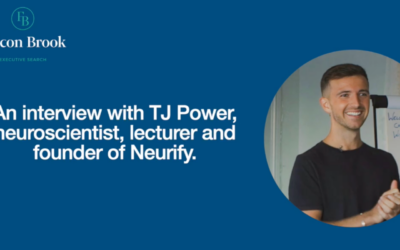Having spent three years as hydrogen and gas quality adviser at ENTSOG, the European Network of Transmission System Operators for Gas, Rosa Puentes has recently taken on the role of Project Manager Renewable Gases Origination at EZS.
EZS is the leading independent biomethane provider in Switzerland working to decarbonise the energy supply in Europe.
Alongside, Rosa is passionate about driving the diversity agenda, especially as part of the influential Women In Green Hydrogen.
We met to discuss her career to date and what she sees some of the emerging opportunities for hydrogen and for women in energy.
You took a degree in engineering and then focused your career on the business side of renewables. What are your main motivations?
Roles where I can foster collaboration and partnership between key stakeholders are very important for me. Ensuring the energy transition is affordable and sustainable in the long term is my main driver. I want to be an active part of the change and use my knowledge and time to make a positive impact.
We need sustainability and decarbonisation but not at any cost. We must not make customers pay more in the future and for that we need to “humanise” the energy: be closer to the consumers, understand their needs and concerns, make them an active part of the transition towards renewable sources.
On the supply side we still need to develop new ideas and innovation is required to bring radical change into the energy system since some of the principles and underlying rules are not optimised for the massive deployment of renewable energy.
On the demand side it’s all about behaviour change, customer engagement and making use of the available options like energy efficiency savings, which have not been fully utilised so far.
Hydrogen can be divisive, with many advocates and sceptics on all sides. What’s your perspective?
I ‘discovered’ hydrogen about five years ago. Some say electricity is the only way and others that Hydrogen is the silver bullet, but none of them are right. Diversity of energy sources and technologies is what brings value.
Hydrogen will complement renewable energies and can couple electricity and gas networks. Green hydrogen is exciting though it depends on the massive deployment of renewable electricity. The pace is picking up but not at the necessary speed. This means that, unless renewable energy power is massively deployed, we won’t see hydrogen at scale for another five or even more years. Therefore, the 2030 and 2050 environmental and energy goals will be tough to reach.
On the other hand, biomethane has a great potential to substitute natural gas in an easy and cost-efficient way. By 2030, Europe could produce approximately 10% of the natural gas demand only by utilising the biogas and biomethane potential. This is an “easy” gain since the technology and markets are already matured and widely developed.
Focusing on the latest energy trend can derail the development of more mature solutions that could help our energy system decarbonise faster. Decisions made today will have an impact on the future and since the future is uncertain, we should leave as many open possibilities as possible and materialise those that show the greatest benefits for society.
What are some of the challenges ahead?
We need to balance development costs and find a more realistic, balanced pace particularly to ensure security and cost of supply. We also need to understand how hydrogen will flow across borders and how we create a connected European market. The current situation has shown how fragile supply and value chains can be. We can’t produce everything in Europe. We are dependent on many different countries for raw materials and equipment in places where energy goals and human rights records vary.
Geopolitics plays a huge role. The energy transition needs a global perspective. We are not alone in the world. The EU is trying to find common ground and focusing on partnerships with non-EU countries. Africa has a great potential for renewable energy.
But when we talk to some of the men and women working in Africa, you realise that their priorities are not aligned with EU ones because their jobs depend on the existence of fossil fuels. I have heard the word “green colonialism” for some time now and it has really stuck in my mind. How do you ensure that the deployment doesn’t affect local communities trying to provide for their families?
You studied engineering and then took an MBA. What is your experience of being a woman in a technical and a business space?
Sustainability is the only business area where I see plenty of women. The renewable energy sector has around 32% female employees while the oil and gas one is around 22%, according to the International Energy Agency Report. However, only 10% are in executive roles. There is clearly a glass ceiling or as I tend to call it: a concrete ceiling, because we can see it.
Men still dominate the technical pathways. For instance, during my studies, it was always men coming to the university to give speeches about our future jobs. It’s disappointing not to see more women being represented at expert talks, for example. They exist! Give them some visibility. I wish I had met more professional women when I was younger. It would have given me a better perspective of the sector and the confidence that there is space for both women and men, in the engineering space.
Even nowadays, we see pay-gaps and inequalities. For instance, I have met senior women who came back from maternity and had to face a lot of international travel and out of hours work. They handled all of this behind the scenes because they don’t want to speak out and be seen as weak or stay out of the deserved promotion. Meanwhile, a man who takes time to look after his children is seen as a good dad. Why is the perception still different for women? It’s exhausting – like having two full time jobs.
It is also tiring to see targets for women employees. I understand the need for quotas because it seems like without them, women are just not promoted, even if they are exceptional. But at the same time, I don’t want to be promoted just because I’m female. Equally women shouldn’t need to work extra hours to prove themselves. However, there are too many biases and hidden social norms. We do not have equal treatment even if it looks like it.
How do you see this changing for the next generation?
I try to join as many undergraduate talks as I can because I think when you see a woman in a role, then you can imagine yourself in it as well. I go there and I encourage them to go for it, but we also need to be honest with the younger generation and tell them it is not easy, sometimes it is even too hard, but it is possible. You can have a fulfilling career, you can find your path and succeed. And the more we are, the better it gets.
We also need to get beyond bias around what problem solving looks like in energy. We need people with new ideas who know how to tackle the problems we are facing in the energy sector, which are unprecedent. Knowing how to design a better windmill blade or solar PV panel is one type of innovation but there are so many more possibilities. You do not need to have three masters degrees and a PhD to find disruptive solutions. Trust me. It all starts with an idea, some motivation, and a little bit of initiative.
I’m an initiative taker. But I am also aware that I have my limitations and I need to be complemented by others. Yet, I am still surprised when I see all the list of requirements for entry level positions. I know lots of people who are great thinkers and don’t get an interview because they are not engineers. Diversity of backgrounds is also important!
Sometimes it is even more valuable knowing how to resolve conflict, or address criticism, or handle colleagues and negotiate situations than knowing fluid mechanics (of course, it depends on the job). The best professionals I have found are usually good communicators that know how to deal with people, motivate teams and handle conflict. These are all vital skills.
Energy companies want to attract diverse talent and especially women. What could they do better?
Diversity is a word that is often misused. Not enough people talk about inclusion. Businesses still don’t accommodate for women. When most of the decisions are made by men it’s hard for women to succeed with their ideas.
We need to listen to women. I’ve been invited to “diversity” workshops on how to dress more like a man, how to behave more like a man. We’re still trying to change the women. We’re doing the diversity part (somehow) but not the inclusion one. We need to adapt the workplace to be welcoming for women, and not the other way around.
How would you advise women thinking about a career in energy?
Decide what role you want to play and what motivates you. Know what you like about yourself, your personality, and your job. And even if you still don’t know 100% what you want to do in life, that’s ok, you can always iterate. We live in such a globalised workplace that we can work almost from anywhere and deliver incredible results. Companies that are adapting and valuing that are obtaining better retention rates and employees’ satisfaction.
In any sector, nowadays, you need to be visible and part of all the conversations. Speak up. At the beginning It’s hard and your boss may not appear approachable or may not listen sometimes. But don’t let the frustration stop you from finding a way to communicate. Your boss may not realise what they’re doing, or the person in the meeting may not realise that they’re interrupting you all the time or that making sexist jokes during a meeting is no longer acceptable. You will most likely work in an environment with people from different cultures, generations, backgrounds, and mindsets. What may seem obvious for you, may not be for another person. It is important to communicate your values and boundaries.
I used to be introduced as the ‘pretty and lovely Rosa’. It’s not appropriate for a business meeting so I said so. He did not know that I found it uncomfortable. Find your confidence and then speak up. It’s a balance. You don’t have to be aggressive, but you don’t have to be passive either.
Always be respectful even with the most sexist and misogynist person. Be tough when you need to be but be fair and thoughtful. A 90 second pause is the difference between a reaction and a more considered response. Just a minute and a half is all it takes to speak from the head as well as from the heart.



